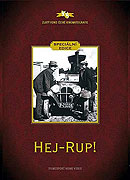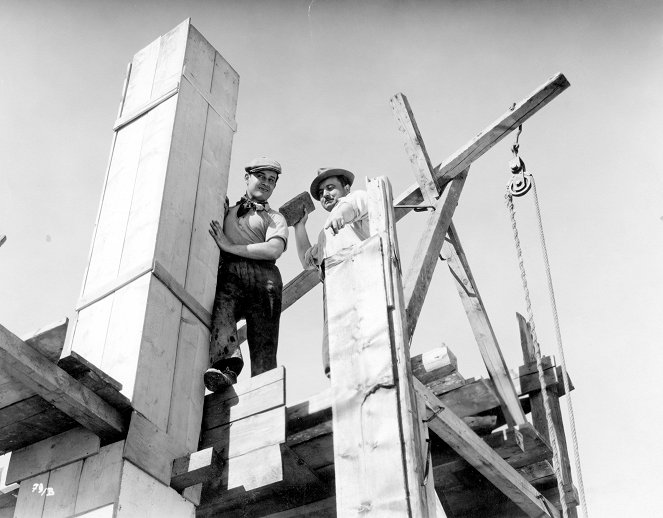Regie:
Martin FričKamera:
Otto HellerMusik:
Jaroslav JežekBesetzung:
George Voskovec, Jan Werich, Helena Bušová, Anna Švarcová, Josef Skřivan, Theodor Pištěk, Zvonimir Rogoz, Alois Dvorský, Václav Trégl, František Černý (mehr)Kritiken (3)
Eine ausgezeichnete Satire, die auch in schweren Zeiten für ausverkaufte Kinosäle gesorgt hat. So gut ist der Film, so sehr hat er damals den Menschen aus der Seele gesprochen. Dass sich Voskovec und Werich entschieden haben, mit dem innovativen Regisseur Martin Frič zusammenzuarbeiten (Heave Ho! war zum Beispiel der erste tschechoslowakische Film mit einer Rückprojektion), halte ich für eine sehr glückliche Entscheidung. Man merkt auch, dass am Drehbuch Václav Wasserman mitgearbeitet hat. Dadurch hat die Geschichte Schwung, jede Szene macht Sinn und nichts ist "nur zum Spaß“, obwohl es im Film viel Spaß gibt. Der beste Film von Voskovec und Werich sollte jedoch noch kommen. Ich bin also eigentlich erledigt. – Aber ehrlich!
()
A classic Czech film that today would certainly be considered socially engaged, but it's important to realize it was made before World War II and before the arrival of communism. When you overlook the ideology present in it, you get a film that has incredible catchphrases. Basically, there's always something to laugh about, and with Voskovec and Werich, it's evident how well their chemistry worked together. Today, it definitely won't appeal to everyone, especially due to its unrestrained enthusiasm and easy connection to communist socialism, where everything belongs to everyone. However, that doesn't change the fact that it's an entertaining film with great actors and excellent dialogue.
()
When it was made, the film was received by Czech film critics with undisguised enthusiasm, seeing in it a breath of fresh air, and even a touch of worldliness, in an otherwise stale Czechoslovak film scene. Let's face it, compared to all those silly Czech films with their happiness and sadness, this can definitely be considered an Oscar-worthy affair, although unfortunately, it's more like a one-eyed king among the blind. The time period in which it was made is very apparent, as Czechoslovak cinema was just beginning to develop and Voskovec and Werich were only just finding their place on the silver screen. In both cases, especially with Voskovec, the theatrical style of the Liberated Theatre is still noticeable. Additionally, this film is a manifesto of the interwar left-wing avant-garde influenced by the Soviet model, and deeply immersed in the belief in the power of collectivism. Of course, the historical context is different from the construction works of the late 1940s and early 1950s, and the creators of the film received praise from the liberal bourgeois press, but still, that genuine naivety feels somewhat unpleasant to me. I disagree with those who claim that the film satirizes left-wing ideals, as that critical distance is missing, partly because the film was made before the Moscow Trials and there was no reason to doubt. The apparent caricature is rather a consequence of the unintentional mishandling of individual motifs. It was meant to be a social critique, but you cannot make a full-fledged adversary to Voskovec and Werich out of a trembling wheelchair user who represents a powerful factory boss and who also awkwardly overacts. Werich, as a typical representative of left-wing ideological orientation on the silver screen, portrayed his ideals much more convincingly in The Emperor's Baker - The Baker's Emperor a few years later. Overall impression: 55%.
()


Werbung